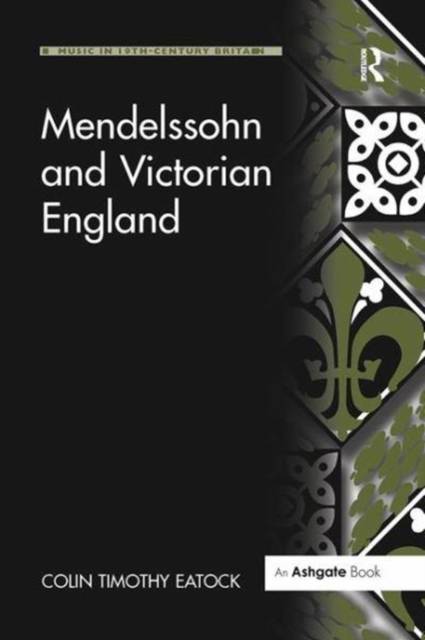
Je cadeautjes zeker op tijd in huis hebben voor de feestdagen? Kom langs in onze winkels en vind het perfecte geschenk!
- Afhalen na 1 uur in een winkel met voorraad
- Gratis thuislevering in België vanaf € 30
- Ruim aanbod met 7 miljoen producten
Je cadeautjes zeker op tijd in huis hebben voor de feestdagen? Kom langs in onze winkels en vind het perfecte geschenk!
- Afhalen na 1 uur in een winkel met voorraad
- Gratis thuislevering in België vanaf € 30
- Ruim aanbod met 7 miljoen producten
Zoeken
Omschrijving
This valuable book considers the reception of the composer, pianist, organist and conductor Felix Mendelssohn in nineteenth-century England, and his influence on English musical culture. Despite the composer's immense popularity in the nation during his lifetime and in the decades following his death, this is the first book to deal exclusively with the subject of Mendelssohn in England. Mendelssohn's highly successful ten trips to Britain, between 1829 and 1847, are documented and discussed in detail, as are his relationships with English musicians and a variety of prominent figures. An introductory chapter describes the musical life of England (especially London) at the time of Mendelssohn's arrival and the last two chapters deal with the composer's posthumous reception, to the end of the Victorian era. Eatock reveals Mendelssohn as a catalyst for the expansion of English musical culture in the nineteenth century. In taking this position, the author challenges much of the extant literature on the subject and provides an engaging story that brings Mendelssohn and his English experiences to life.
Specificaties
Betrokkenen
- Auteur(s):
- Uitgeverij:
Inhoud
- Aantal bladzijden:
- 208
- Taal:
- Engels
- Reeks:
Eigenschappen
- Productcode (EAN):
- 9781138255807
- Verschijningsdatum:
- 11/11/2016
- Uitvoering:
- Paperback
- Formaat:
- Trade paperback (VS)
- Afmetingen:
- 156 mm x 234 mm
- Gewicht:
- 299 g

Alleen bij Standaard Boekhandel
+ 228 punten op je klantenkaart van Standaard Boekhandel
Beoordelingen
We publiceren alleen reviews die voldoen aan de voorwaarden voor reviews. Bekijk onze voorwaarden voor reviews.









